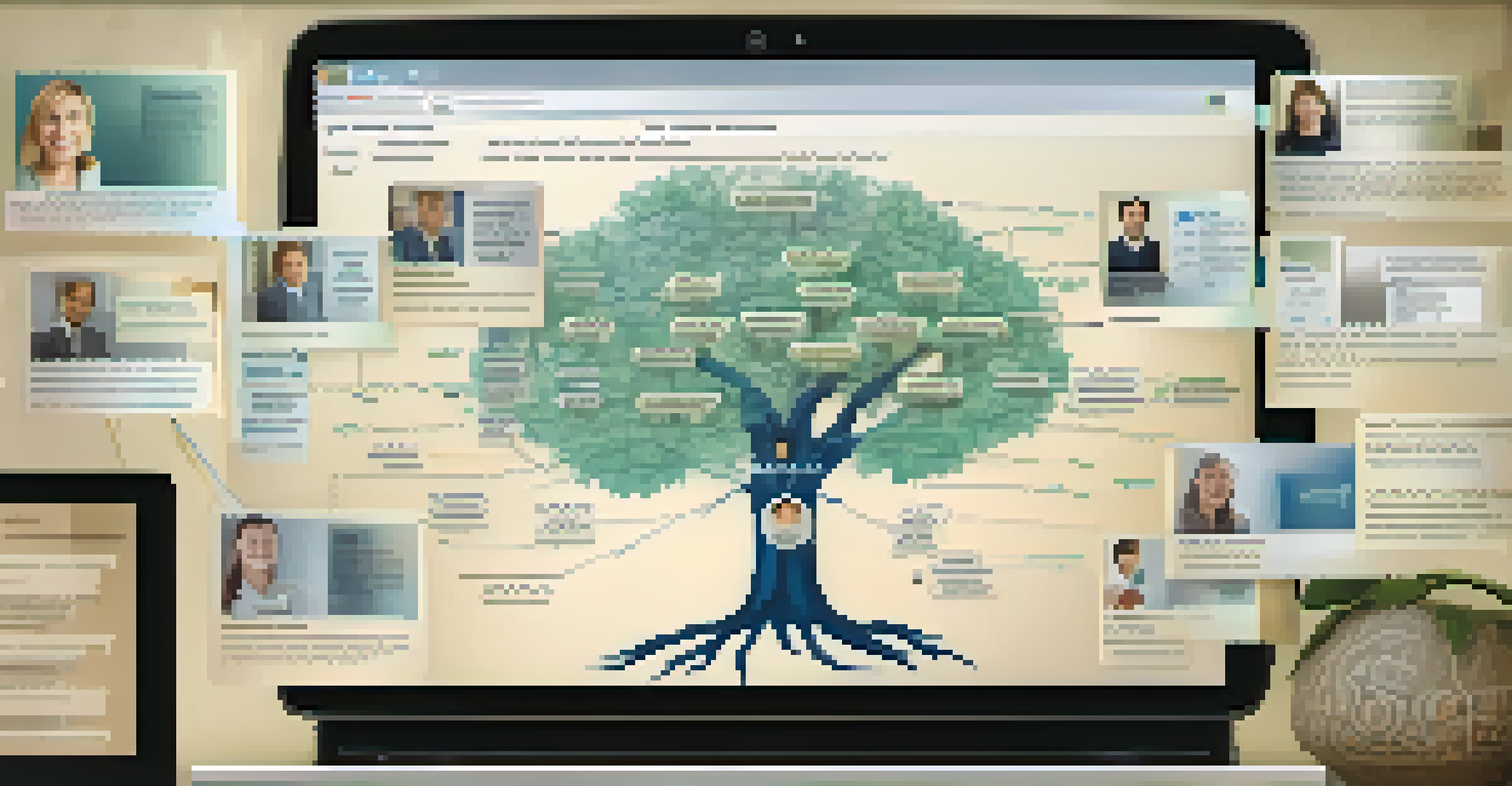The Impact of Family History on Genetic Counseling

What is Genetic Counseling and Its Importance?
Genetic counseling is a process that provides individuals with information about genetic conditions and hereditary diseases. It helps people understand their genetic risks based on family history and personal health. By doing so, genetic counselors can guide patients in making informed choices regarding their health and potential testing options.
Genetics is about the study of genes, but family history is about the story of a family.
Counselors not only educate patients about their genetic makeup but also provide emotional support. This can be particularly crucial for those who may face difficult decisions regarding their health or family planning. The holistic approach of genetic counseling empowers individuals to take control of their health journey.
In today’s world, where advancements in genetic testing are rapid, understanding genetic counseling becomes essential. It’s not just about the science; it’s about navigating personal stories intertwined with genetics, which is where family history plays a pivotal role.
The Role of Family History in Genetic Counseling
Family history acts as a roadmap for genetic counselors, offering insights into patterns of inheritance. By examining a patient's family tree, counselors can identify potential risks for genetic conditions prevalent in the family. This information is vital for assessing the likelihood of passing on hereditary diseases.

For instance, if a family has a history of breast cancer, this information can lead to discussions about genetic testing for BRCA mutations. Understanding these familial links enables targeted strategies for prevention and early detection, tailoring healthcare to individual needs.
Importance of Genetic Counseling
Genetic counseling helps individuals understand their genetic risks and make informed health decisions based on family history.
Moreover, family history can reveal not just genetic predispositions, but also environmental influences that may contribute to health outcomes. This comprehensive view allows genetic counselors to provide more personalized recommendations, enhancing the effectiveness of their guidance.
Key Benefits of Sharing Family Health Information
When individuals share their family health information with genetic counselors, it opens up a treasure trove of insights. This sharing helps establish a clearer picture of potential genetic risks, making it easier for counselors to provide tailored advice. The more detailed the family history, the more precise the risk assessment can be.
Understanding your family history can be a key to unlocking your health future.
Additionally, sharing this information fosters a collaborative environment between the patient and the counselor. It empowers patients to actively participate in their health decisions, knowing that their unique family context is being considered.
Ultimately, sharing family health information not only benefits the individual but can also have implications for other family members. If a genetic risk is identified, relatives may also benefit from testing and preventive measures.
Challenges in Obtaining Accurate Family History
While family history is crucial, obtaining accurate information can be challenging. Many individuals may not have complete knowledge of their family's health history, especially if relatives are distant or if communication is limited. This lack of information can hinder risk assessment and counseling.
Moreover, cultural factors can play a role in how families share health information. In some cultures, discussing health issues may be considered taboo, making it difficult for individuals to gather the necessary details for genetic counseling.
Family History Guides Risk Assessment
A detailed family health history allows genetic counselors to identify potential genetic risks and tailor prevention strategies.
Counselors often need to employ strategies to help patients navigate these conversations with family members. Encouraging open dialogue about health can be a vital step in improving the accuracy of family histories.
The Impact of Technology on Family History Collection
In recent years, technology has revolutionized how we collect and share family health histories. Online tools and apps allow individuals to document their family's health information easily, making it accessible for future generations. This tech-savvy approach encourages proactive health management.
Moreover, genetic testing companies often provide platforms that help individuals construct their family trees with integrated health data. This not only enhances the accuracy of the information but also engages patients in their health journey.
However, while technology offers convenience, it also requires individuals to be mindful of privacy concerns. Understanding how data is handled and shared is essential for maintaining the confidentiality of sensitive health information.
The Future of Genetic Counseling and Family History
As genetic counseling continues to evolve, the integration of family history will remain a cornerstone of the practice. Emerging research and technologies will likely refine how counselors assess risks and provide recommendations based on familial ties. This evolution promises to enhance the personalization of genetic counseling.
Additionally, public awareness about the significance of family medical history is expected to grow. As more individuals understand the implications of their family background on their health, they may proactively seek genetic counseling services, leading to better health outcomes.
Technology Enhances Family Health Data
Advancements in technology facilitate easier collection and sharing of family health histories, improving accuracy and engagement in health management.
Ultimately, the future of genetic counseling will hinge on collaboration between patients, families, and healthcare providers. By prioritizing family history in this dialogue, we can create a more informed and health-conscious society.
Conclusion: Embracing Family History in Healthcare
In conclusion, family history is a powerful tool in genetic counseling that can guide individuals towards informed health decisions. By understanding the genetic risks associated with their family background, patients can make proactive choices about their health. Genetic counselors play a pivotal role in facilitating this understanding.
As we move forward, embracing family history in healthcare practices will be essential. It not only enhances genetic counseling but also fosters a culture of communication and awareness within families.

Ultimately, the intersection of family history and genetic counseling paves the way for a healthier future, where informed choices lead to better health outcomes for individuals and their families.